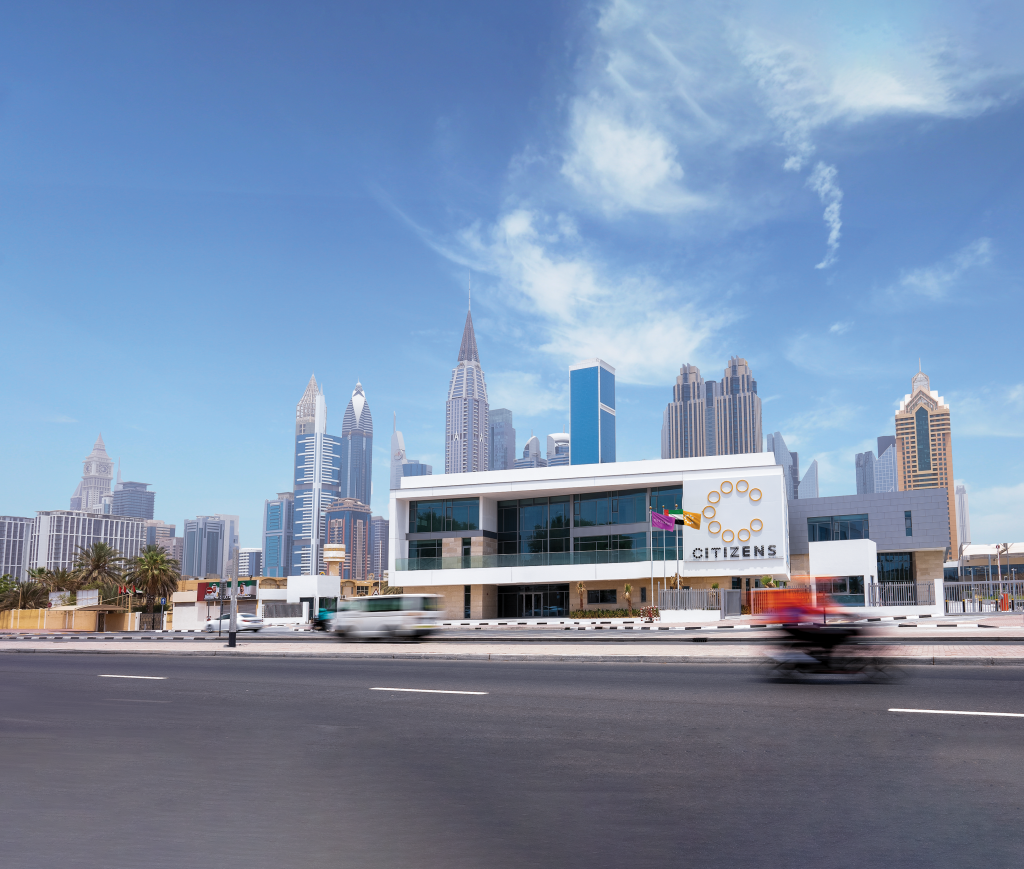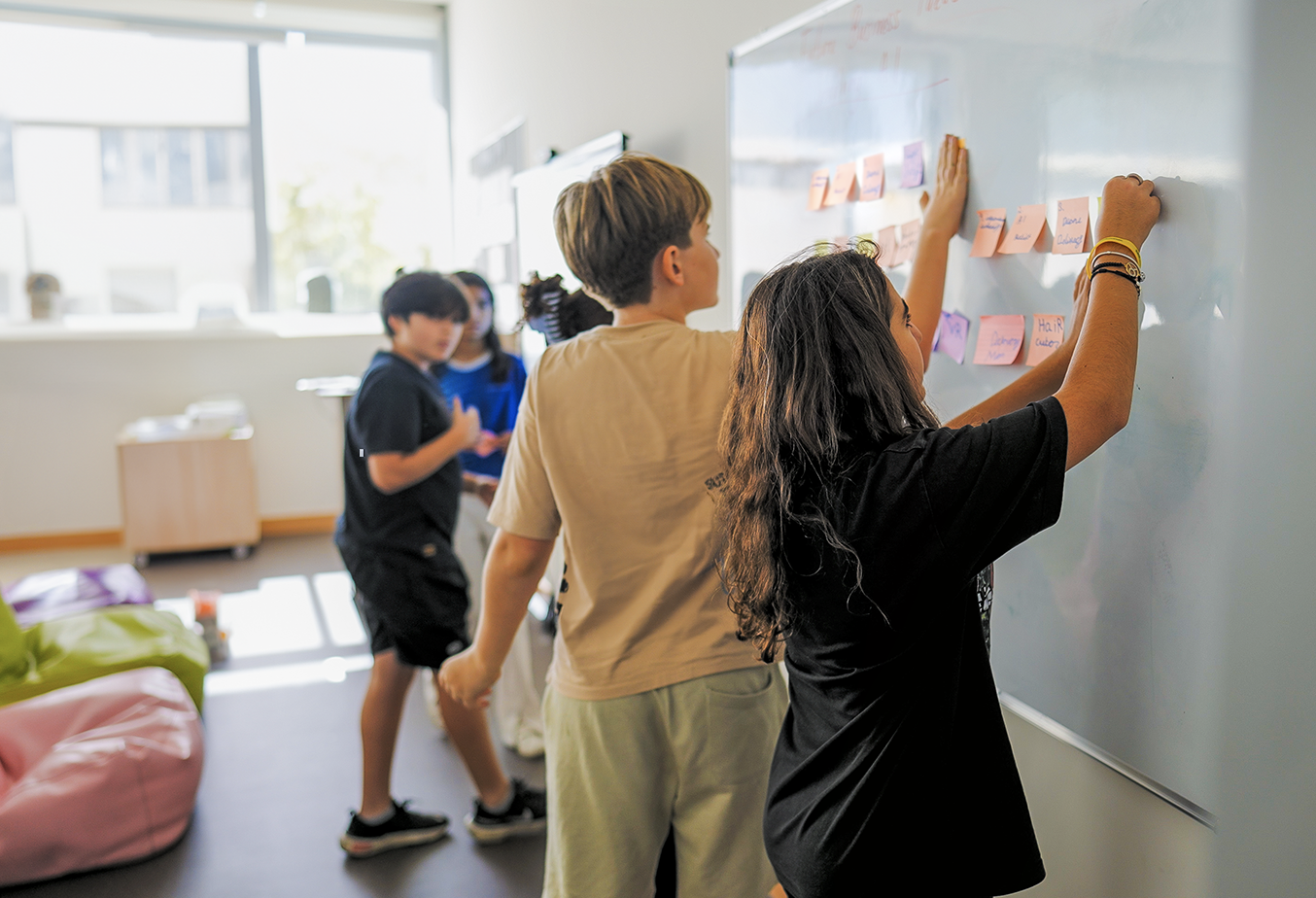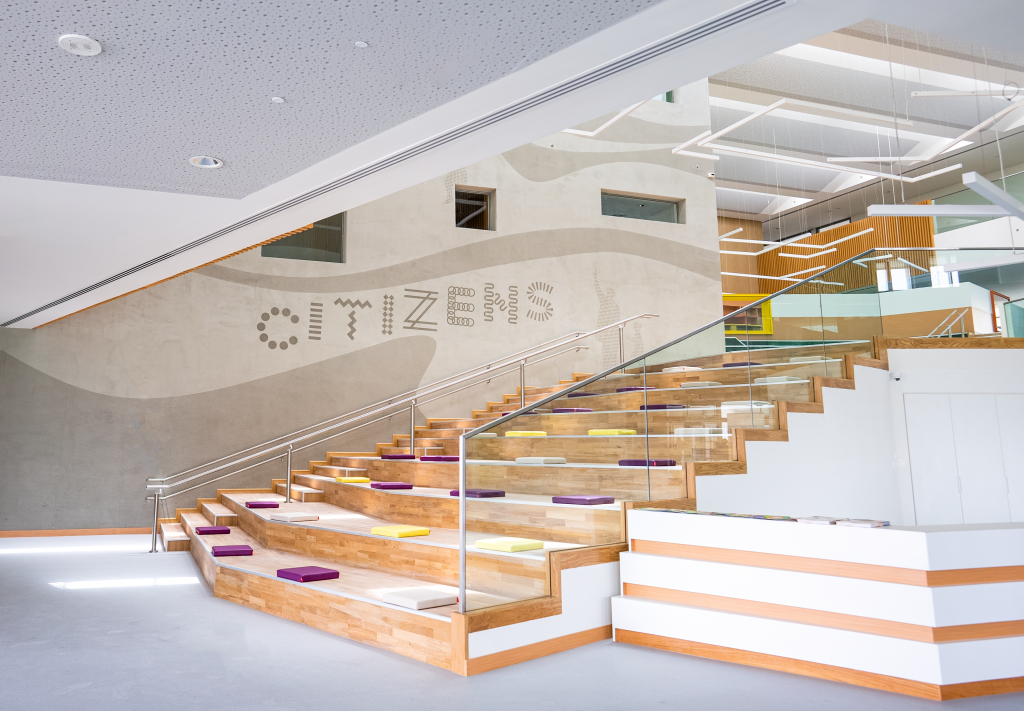Citizens School provides an entrepreneurship curriculum for children from FS1 (age 3) to Year 8 (age 13), with a vision to prepare young minds for the rapidly evolving future of work and business. Citizens School believes that the success of children is through the development of skills and attitudes. This includes observing improvements in creative thinking, problem-solving, resilience, and teamwork. EdDesign Mag asked market experts how to balance between child’s natural development and skills that are useful to gain for the future careers. Entrepreneurial curriculum: yes or no?

Photo by Citizens School
The school’s founder Dr. Adil Alzarooni, is a firm believer in the importance of emphasizing entrepreneurship education starting from an early age.
The school believes their curriculum has the added benefit of strategically positioning the school and providing a unique angle in the educational offerings in the UAE.
![]()
“This curriculum is more than just business skills, it’s about nurturing a generation of creators, innovators, and problem solvers,” says Dr. Adil Alzarooni, Founder of Citizens School.
According to Alzarooni, for the early years (FS1 to Year 2), the focus is on experiential learning and creativity, with programs tailored to learner’s developmental stages including interactive workshops, hands-on projects, and collaborative activities designed to spark curiosity and creativity. As learners progress (Year 3 to Year 8), the curriculum shifts to a structured module learning approach.
Citizens School believes that the success of children is through the development of skills and attitudes. This includes observing improvements in creative thinking, problem-solving, resilience, and teamwork.
![]()
“Our complete infrastructure takes into account the overall wellbeing of the learner, exposing them to a rich and varied curriculum that explores culture and the arts in an enlightened and exciting way,” added Alzarooni.
Parents receive regular updates through portfolios showcasing their child’s progress, reflections on learning experiences, and mentor assessments, they explained.
Photo by Citizens School
Entrepreneurial parents and business practitioners play a crucial role in co-creating and co-delivering the curriculum, they added. That is because the school receives continuous feedback from parents, educators, and industry experts ensuring that the curriculum remains authentic and effective in achieving its educational goals.
The school said that they look at authenticity above promotion which is why the program is designed in a way that is rooted in educational research and real-world relevance, not merely as a marketing tool.

Photo by Citizens School
“I believe children aged 2-7 years should have a mixed structure of learning and free play,” explains Craig Fernandes, Cofounder and CEO of SecureMyScholarship, a scholarship search engine tool.
Fernandes, a serial entrepreneur himself, ranked 30 under 30 by Forbes explains that for a child to grow within a tailored learning environment, they have to be exposed to places that are designed to build critical skills, while also allowing for natural growth and learning through unstructured free play.
However, Fernandes believes “it is sad” that many parents go overboard with trying to 'train' their kids from a very early age, and do not allow the child to develop their social, communicative and cognitive skills organically, which may often result in a less suitable early learning phase.
![]()
Panjabi said that his thirteen year old daughter recently was a part of a Junior MBA Program that she participated in at the Arcadia School every Sunday morning.
"We often underestimate what opportunities exist because we don't think like our kids. They will see business ventures and cultural shifts where we see labels of laziness. If they can monetize these opportunities whilst applying the theoretical elements to it, they will have a strong foundation for success," added Panjab.
![]()
Some experts believe that educational programs for children aged 2-7 years should focus on the development of their physical, emotional, cognitive and social skills, along with emotional understanding. So programs such as play based learning, which helps children to encourage exploration and creativity through play. Others include language development, which focuses on building language skills through reading, writing, and storytelling. This should also help improve communication skills as well.
Exposure to art and music will enhance creativity and imaginative thinking, through drawing, painting, music, and dance. But also [physical education can help promote physical development, plus also build teamwork and social skills.

Photo by Citizens School
Fernandes explains that results can be measured through multiple ways such as observational assessments, where teachers and parents can observe the child's interactions, play, and learn to assess development. Another way would be maintaining regular progress reports on a child's progress in various areas, such as language skills, social interactions, and cognitive abilities which should help measure and fine-tune development programs. Moreover, schools can get parental feedback about their child’s behaviour at home, can provide insights into the program’s impact and help teachers optimise accordingly.
![]()
In addition to entrepreneurial programs, the physical school environment should be specifically designed to maximize early learning outcomes. Some key aspects include play areas for the children's enjoyment, which should optimally include spaces for free play both indoors and outdoors.
Moreover, schools must include learning zones, which are dedicated areas for different types of learning activities, such as reading corners, art stations, and areas for hands-on, experiential learning.
Exposure to natural elements, by incorporating different elements of nature through outdoor play areas, plants in classrooms, and natural light, could also help children develop their cognitive ability. Nonetheless, creating comfort and sensory stimulation by providing things like comfortable seating, a variety of textures, and a balance of vibrant and calming colours to stimulate and engage children’s senses in a balanced way.
![]()
January 2024


